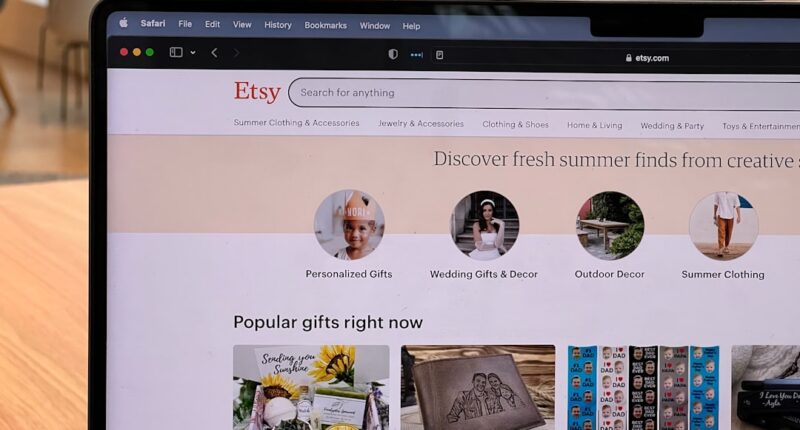The success of a business can be greatly impacted by the platform selection in the quickly changing world of e-commerce. With distinct market niches, Wix and Dukaan are two well-liked alternatives that have surfaced. Wix, which was first recognized for its ability to create websites, has now added strong e-commerce features to its portfolio. It is a favorite among entrepreneurs and small business owners who value design and user experience because it makes it simple for users to create aesthetically appealing websites.
Key Takeaways
- Wix and Dukaan are both popular e-commerce platforms that offer a range of features for creating and managing online stores.
- Wix has a user-friendly interface with drag-and-drop functionality, while Dukaan is known for its simplicity and ease of use.
- Both platforms offer essential e-commerce features such as product management, payment gateways, and order tracking, but Wix has more advanced functionality for larger businesses.
- Wix provides extensive customization options and a wide range of design templates, while Dukaan offers a more streamlined approach with limited design options.
- Wix offers a range of pricing plans with added value for larger businesses, while Dukaan is more affordable for small businesses and startups.
Dukaan, on the other hand, is a relatively newcomer to the e-commerce space and was created especially for businesses who want to quickly and effectively launch online stores. Users can launch their e-commerce sites in a matter of minutes thanks to Dukaan, which prioritizes speed and simplicity. Small businesses and independent sellers who might lack in-depth technical expertise but wish to create an online presence without the hassles of traditional e-commerce solutions will find this platform especially appealing. Both Wix and Dukaan provide unique benefits suited to their target markets in terms of usability and user interface. Wix’s incredibly user-friendly drag-and-drop interface makes it simple for users to modify their websites.
Users are able to choose a design that complements their brand identity thanks to the platform’s abundance of templates that are tailored to different industries. Even individuals with little technical expertise can create websites that look professional thanks to the visual editor’s ease of use. Also, Wix provides community forums & an extensive tutorial library, which improve the user experience by offering direction and assistance. On the other hand, Dukaan places the highest value on simplicity and speed. The platform is made for users who wish to launch their online store as soon as possible. Dukaan’s simplified onboarding process enables users to set up their stores with a few clicks.
First-time users can easily navigate the interface because it is simple and prominently displays the most important features. For small business owners who might feel overpowered by more complicated platforms, this simplicity is especially helpful. By emphasizing simplicity, Dukaan makes sure that users can focus on selling instead of becoming bogged down by complex technical setups or design decisions. Wix and Dukaan both provide a variety of e-commerce features to meet various business requirements, but they do so in different ways.
Wix offers an extensive range of e-commerce tools, such as shipping, payment processing, & inventory management. In addition to tracking orders & integrating multiple payment gateways like PayPal, Stripe, & credit card processors, users can effortlessly manage their product listings. Businesses can sell downloadable goods like software or e-books straight from their websites thanks to Wix’s support for digital products. Also, the platform has features like abandoned cart recovery, which reminds users of the things they left behind and can boost conversion rates. Despite taking a more straightforward approach, Dukaan does not omit any crucial e-commerce features.
It enables users to set up payment gateways, manage their products effectively, and fulfill orders with ease. Creating a store link that can be shared on social media is one of Dukaan’s unique features; it allows sellers to reach a wider audience without requiring a dedicated website. For small businesses wishing to use social commerce, this feature is especially helpful. Also, Dukaan provides integrated analytics tools that give merchants information about customer behavior & sales performance, assisting them in making well-informed decisions regarding their marketing plans. Any e-commerce platform must have customization since it enables companies to develop a distinctive brand identity that appeals to their target market.
Wix is excellent in this regard because it provides a vast collection of fully customizable templates. Customers can easily change layouts, images, fonts, and colors to make sure their online store embodies the essence of their company. Advanced design elements like animations and video backgrounds are also supported by the platform, which can improve the user experience in general.
Wix offers the resources required to create a unique appearance for companies seeking a highly customized website. Dukaan, in contrast, approaches customization in a more efficient manner. Although it provides a number of useful and aesthetically pleasing templates, the degree of customization is not as great as Wix’s. This restriction can be viewed as both a benefit and a drawback; although it makes the design process easier for users who might not be designers, it might not be enough for those who want a lot of customization choices. Dukaan does, however, let users alter key components like logos and color schemes, guaranteeing that companies can preserve a certain degree of brand coherence without going overboard with complexity.
Pricing is frequently a deciding factor when choosing an e-commerce platform, and Wix and Dukaan both offer competitive options that can be customized to fit a range of budgets. With different price tiers to suit different needs, Wix uses a subscription model. The basic plan may not have all of the sophisticated e-commerce features found in higher-tier plans, but it does have the features that small businesses need. Unlimited product listings and sophisticated analytics tools are among the extra features offered by the Business or eCommerce plans for companies seeking full e-commerce capabilities.
Many users find value in Wix’s wide range of design options and strong support, even though its prices may be higher than those of some rivals. By providing both a free plan with restricted features and paid plans that unlock more features, Dukaan takes a different approach to pricing. Before determining whether to upgrade, users can test the platform using this method without having to pay for it. Competitively priced, the paid plans grant access to features like advanced analytics and custom domain names.
The pricing structure offered by Dukaan can be especially alluring for new small businesses or individual sellers because it reduces upfront expenses while maintaining the provision of necessary e-commerce tools. Wix: A Whole-System Support. Wix provides a comprehensive support system that includes round-the-clock chat and email customer service as well as a knowledge base full of tutorials, articles, & video guides. Users are guaranteed to be able to find answers to their questions quickly and effectively thanks to this abundance of resources. Also, Wix features a vibrant community forum where users can exchange solutions and experiences, encouraging a feeling of camaraderie among retailers.
Dukaan: Easy-to-use Interface and Self-Service Features. While Dukaan acknowledges the value of customer service as well, their strategy is a little different. Even though its website has a FAQ section & email support, the degree of direct assistance might not be as extensive as Wix’s. Dukaan makes up for this, though, by providing an easy-to-use interface that reduces the possibility of problems in the first place. Also, the platform offers tools like tutorials and webinars to help users get the most out of their store. Self-service choices & involvement in the community.
Due to Dukaan’s simple design, many common questions can be answered through exploration rather than requiring direct assistance, making it ideal for users who prefer self-service options. Both Wix and Dukaan place a high priority on customer service overall, but they take distinct approaches to meet the needs and preferences of their respective user bases. Effective marketing & SEO (Search Engine Optimization) skills are crucial in the digital marketplace to increase online store traffic.
A variety of SEO tools are available from Wix to assist users in search engine optimizing their websites. These tools improve visibility on search engines like Google and include customizable meta tags, image alt text, and URL structure options. Businesses can also effectively promote their products with Wix’s integrated marketing solutions, which include social media sharing options and email marketing campaigns. Dukaan prioritizes social commerce features over SEO features.
With this platform, users can easily distribute their stores’ shareable links on Facebook, Instagram, and other social media sites. Small businesses wishing to use social media marketing without making significant investments in conventional advertising techniques will even benefit from this feature. Dukaan’s focus on social sharing fits in nicely with current e-commerce marketing trends, even though it might not provide as many SEO tools as Wix.
In the end, the decision between Wix and Dukaan is based on your unique e-commerce requirements & corporate objectives. Wix might be a better option for you if you value sophisticated customization options & design flexibility while also needing full e-commerce functionality. It is perfect for companies wishing to establish a distinctive online presence because of its large template library and strong support resources.
On the other hand, Dukaan might be the ideal choice if you’re looking for a simple solution that enables you to quickly launch your online store with little technical expertise needed. It is especially appealing to small businesses or individual sellers who wish to create an online presence without the hassles that come with traditional e-commerce platforms because of its emphasis on social commerce and simplicity. Both platforms have advantages and disadvantages, so knowing your unique needs will help you choose the best option for your e-commerce endeavors.





